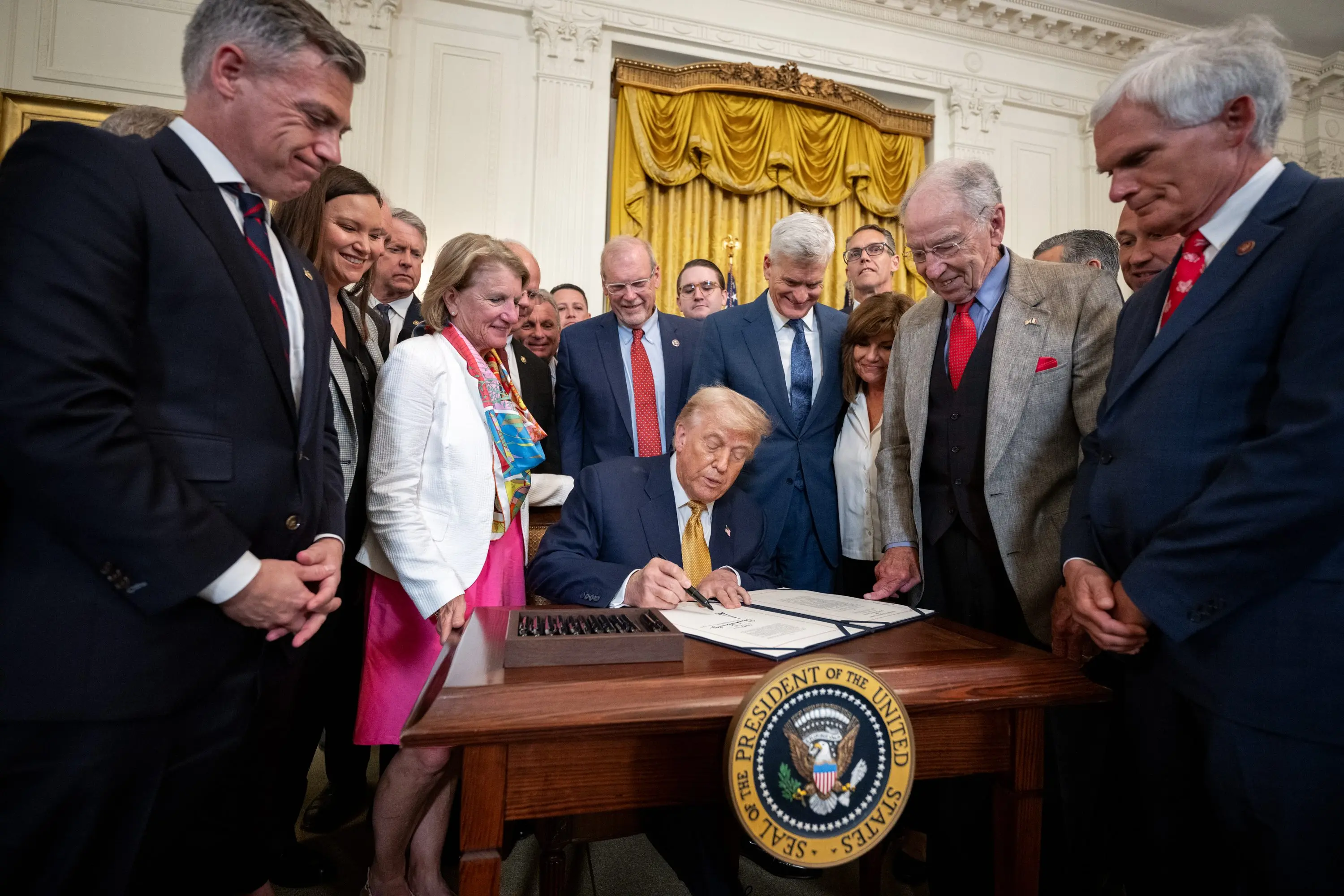
President Donald Trump attends a signing ceremony for the HALT Fentanyl Act, Wednesday, July 16, 2025, in the East Room of the White House. (Official White House Photo by Daniel Torok)
President Donald Trump signed the Halt All Lethal Trafficking of (HALT) Fentanyl Act into law on July 16th, permanently classifying illicit, fentanyl-related substances as Schedule I. The bipartisan legislation was led by Senate Judiciary Committee Chairman Chuck Grassley (R-Iowa), Health, Education, Labor and Pensions Chairman Bill Cassidy, M.D. (R-La.) and Sen. Martin Heinrich (D-N.M.)
Senator Grassley shared why this act is important, and what impact it will have for Americans, “Out of 100,000 drug overdoses about 70% of them come from fentanyl overdose.(According to the Drug Enforcement Agency) And probably a lot of those deaths come because people don’t know that another drug has fentanyl mixed in with it. Here’s the problem, we’ve had fentanyl type legislation that can halt fentanyl for about seven, eight, nine years, but it’s been done on an extended basis. In other words, maybe we extend the law for a year, and then it runs out and you have to extend it again and there are always problems doing that. This is a permanent thing so it doesn’t have to be changed, or not changed, continued from year to year.”
The bipartisan bill was supported by over 40 major advocacy groups, including a coalition of over 200 impacted family groups, and law enforcement organizations representing over a million officers.
According to the Common Sense Institute, a non-partisan research organization the fentanyl crisis has caused a total of $19.2 billion in economic damage to the state of Iowa from 2017 through 2024.

